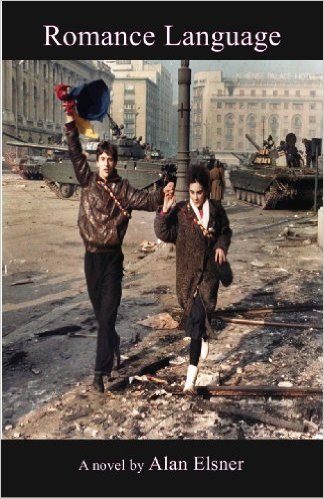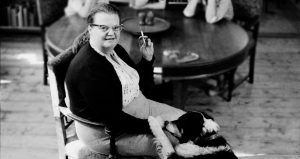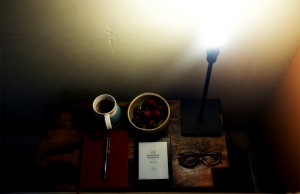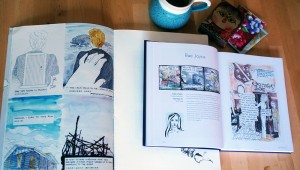 Beautiful cover photo, right? It is by Charles Platiau, Reuters News Service.
Beautiful cover photo, right? It is by Charles Platiau, Reuters News Service.This is a story that happens with the 1989 Romanian revolution in the background, written by an American journalist who spent nine months in Romania in 2007. As the proud Romanian that I am, it is hard for me to see the images of my country constructed by others, from afar. I get defensive: they have no idea, what to they know, how could they understand the depths, the hidden truths, the dark yet beautiful mysteries of this land and its people. As I grow older I am starting to realize that all this patriotism was instilled in me by communist practices and it is in the end more damaging than constructive, and yet I cannot help but feel strongly for my home country–especially now, when I am so far away from it.
So I started reading with this defensive attitude, noticing at first lots of editing problems: inaccuracies (Early Grey instead of Earl Grey, Sex in the City instead of Sex and the City) and incongruences: the car is initially blaring foreign rap music and a page later it is still blasting Balkan pop, and the girl who had “alarming, purple hair” on page 20, later, on page 29, becomes: “the girl, whose hair she now saw was purple.” As I read further into the book, however, I must admit that I didn’t notice anymore editing issues. Maybe there aren’t any. Or maybe the book captivated me to the point where my editing eye was completely blindfolded. By page 50, it just didn’t matter anymore.
I was 13 when the revolution happened. (It’s been 20 years, can you image that? A lifetime.) It was enormous for me, but not as big as it was for my parents’ generation. All I had ever known was communism and it didn’t seem that bad to me. I did not feel the oppression, the lack of liberty or lack of food, as a matter of fact. But sure, even weknew that we had to hide: political views, religious beliefs, our truths. That we had to play roles that were imposed on us, shout slogans and express beliefs that were dictated to us on TV, radio, in the classroom. The revolution was an enormous event, many people died, a lot of fog still surrounds it. “Who shot at us in December 1989” is still a question without an answer in Romania. It is not even called a revolution anymore, because too much of it is shady and seems to have been orchestrated in a way that we do not like to imagine.
Alan Elsner’s book is fiction however, and it does not pretend to be more. It is an very gripping love story, with strong characters. I especially loved the Stefan Petrescu character, the dissident poet who has an important role to play in the revolution. He seems veridic, very believable and very likable too. It made me think of how odd it is that most of our revolution heroes were college students and artists. What does that say about a nation? Poets Ana Blandiana and Mircea Dinescu, and actor Ion Caramitru are among those mentioned in the book.
Anyway, I enjoyed the book very much and I only wish to read a similar, romanced interpretation of the historical events from a Romanian perspective. But maybe it is still too early for us.
More:
Alan Elsner sparks quite a fiery retort from romance writers with his article How Romance Novels Take the Romance out of Romance, published in the Huffington Post.



